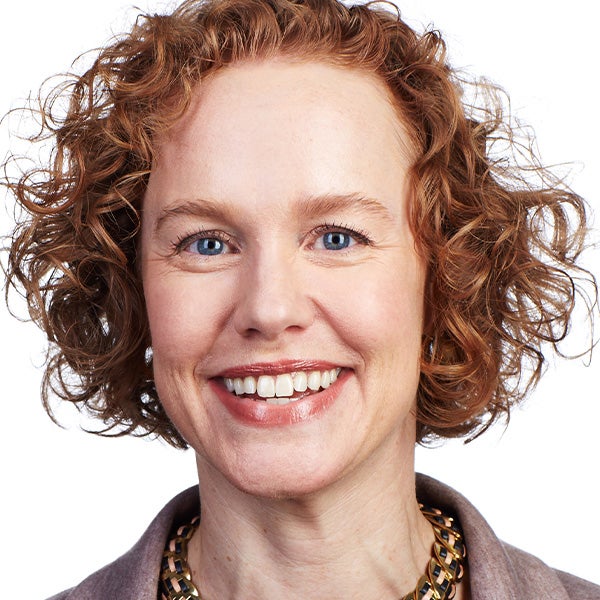Kirsten Ostherr, PhD, MPH is the Gladys Louise Fox Professor of English and founding Director of the new Medical Humanities Research Institute, one of the only research institutes in the world that is solely dedicated to advancing translational research on human experiences of health and illness. She is also founding Director of the Medical Humanities program (2016-present) and the Medical Futures Lab (2012-present) at Rice University in Houston, Texas. She recently served as Chair of the English Department (2020-2023).
Ostherr is a media scholar, health researcher, and technology analyst. Her research on trust and privacy in digital health ecosystems has been featured in Marketplace Tech on NPR, The Atlantic, STAT, Slate, The Washington Post, Big Data & Society, Catalyst, and the Journal of Medical Humanities. Her writing about the COVID-19 pandemic was featured in The Washington Post, STAT, Inside Higher Ed, and American Literature. Kirsten is currently leading a digital health humanities project called “Translational Humanities for Public Health” that identifies humanities-based pandemic responses from around the world to document and help others build upon these creative efforts, and her work was recently profiled in The Lancet.
Kirsten is the author of Medical Visions: Producing the Patient through Film, Television and Imaging Technologies (Oxford, 2013) and Cinematic Prophylaxis: Globalization and Contagion in the Discourse of World Health (Duke, 2005). She is co-editor with Dr. Kim Gallon of a two-part special issue of Reviews in Digital Humanities called, “Race, Health, and Medicine,” editor of Applied Media Studies (Routledge, 2018), and co-editor with Dr. Olivia Banner of “Science/Animation,” a special issue of the journal Discourse (2016). Kirsten is currently writing two books with grant support from the National Library of Medicine and the National Endowment for the Humanities: The Visual History of Computational Health and Virtual Health.
Kirsten received her PhD in American Studies from Brown University. With the support of an Andrew W. Mellon Foundation New Directions Fellowship, Kirsten completed a Master of Public Health degree in Health Promotion and Behavioral Sciences at the UT-Houston School of Public Health. Her MPH research focused on the use of information and communication technologies in end-of-life care.
Kirsten has extensive experience using human centered design as a technique for patient collaboration in health technology development. She co-created Medicine in the Digital Age on edX, an open, online course that has reached over twenty-five thousand global learners. She has spoken to audiences at the White House, the U.S. Department of Health and Human Services, the World Health Organization, the National Library of Medicine, TEDx, the mHealth Summit, Medicine X, the Louisville Innovation Summit, the Bauhaus, and at universities in Germany, Spain, France, England, Sweden, Canada, Hong Kong, and Taiwan.

